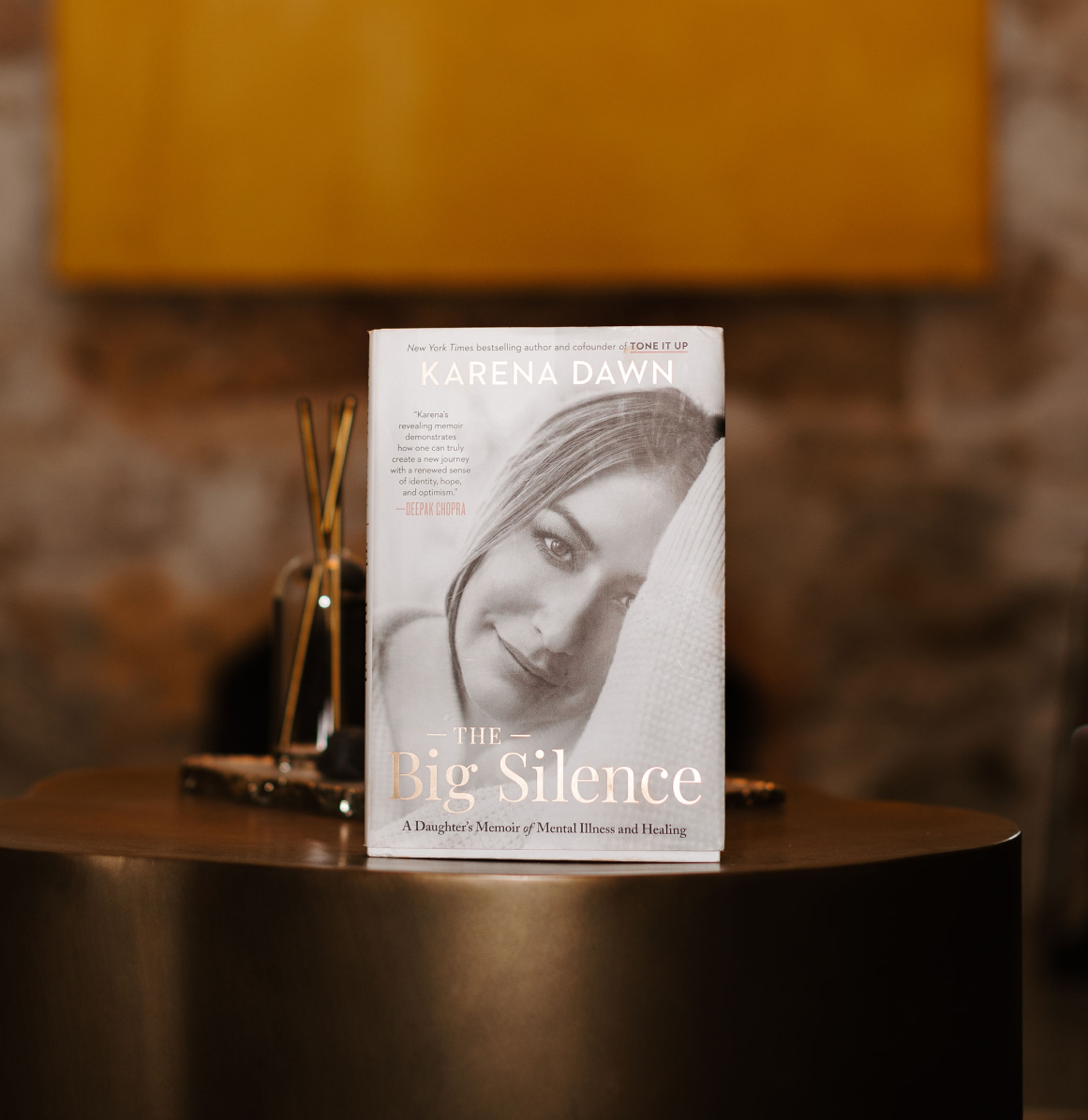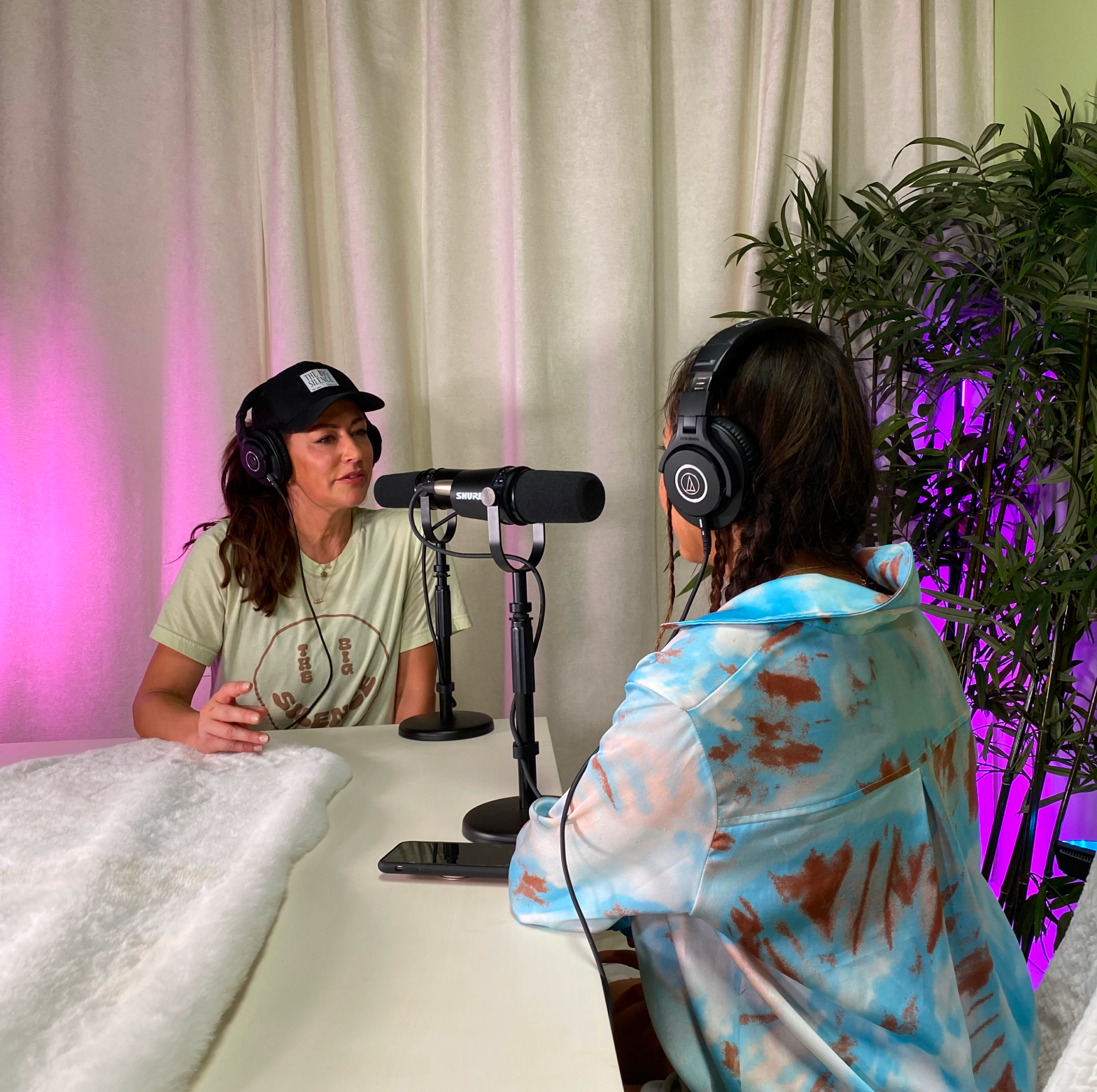
Find Peace and Relax Your Mind and Body with these Movement and Physical Relaxation Techniques
Today, for Big Feels Monday, James and I explore the connection between physical relaxation techniques and mental health. Tune in to learn about physical relaxation techniques that can help to reduce anxiety symptoms. Physical movement and activity is a great help for releasing tension and promoting overall wellbeing. We share some of our favorites physical techniques that help you to find peace and relax your mind and body.
Key Takeaways:
- Understand the correlation between movement, physical relaxation, and mental health.
- Learn various physical relaxation techniques, including cold plunge, hot showers, yoga, and swimming.
- Discover the benefits of incorporating these techniques into your daily routine to alleviate anxiety.
- Recognize the power of nature, such as the ocean, in promoting relaxation and emotional healing.
Who would benefit from this video:
- Individuals seeking natural and holistic approaches to managing anxiety.
- Those interested in incorporating movement and physical relaxation into their mental health routine.
- Anyone looking to gain insights into the mind-body connection and its impact on overall well-being.
What Physical Relaxation Techniques Help to Reduce Anxiety?
For me, movement isn't just about maintaining optimal physical health, but is an essential daily practice that helps me to manage my mental health. At my rock bottom moment (shared about in my memoir, The Big Silence) I reflected on when was the last time I had felt most myself: most hopeful, stable and strong? I realized that it was when I had healthy physical fitness routines. When I was younger I played soccer and I ran half marathons. I knew the way forward meant recommitting myself to exercise. Moving my body helped to save my life! Since then I have learned even more about other physical techniques that have positive impacts on overall stress, reactiveness, anxiety and mental health. I'm sharing some of my favorite techniques!
The Importance of Movement for Mental Health
Over the years I've been shown over and over again that movement is essential for maintaining both physical and mental health. Engaging in regular physical activity can be transform your mental health. When we engage in physical activities, our bodies release endorphins, often referred to as "feel-good" hormones, which can alleviate stress and anxiety. Regular movement, whether through exercise, yoga, or simple stretching, helps to release tension stored in the muscles and promotes a sense of well-being. I encourage you to start with where you are, even if it is a short walk or ten minutes of rocking and stretching, make an effort to move today, and you won't regret it.
Recently I spoke with WarriorBabe Nikkiey Stott, and she had an important reminder for us all - don't wait for the motivation to workout. It might not come! Instead, plan out your routine and find the inner discipline to help get your movement in.
Yoga for a Clear Mind and Calm Heart
Yoga has become a pillar of my movement and physical fitness. Yoga combines physical postures, breathing exercises, and meditation to create a holistic approach to relaxation. Practicing yoga regularly can help lower cortisol levels (the stress hormone), improve flexibility, and increase mindfulness. Specific poses like Child’s Pose, Legs-Up-The-Wall, and Corpse Pose are particularly effective for calming the nervous system. You can find some of my favorite yoga flows in the Tone It Up app!
Try a Yoga Flow with me!
Lift Weights to Boost Your Mood
Recently weight-lifting and resistance training has been my go to method for lifting up my mood and pumping up my good endorphins. In studies, weight-lifting is shown to have positive impact on cognitive function and can help to decrease symptoms of depression. My trainer, Sandy Brockman, is my accountability partner, and she keeps challenging me to grow my muscles (especially the glutes) which helps to lead to longevity and better health overall.
Try these basic strength moves with me, and get pumped!
The Power of Body-Mind Connection
In meditation I sometimes use body scan and apply a technique called "Progressive Muscle Relaxation" (PMR). PMR involves tensing and then slowly releasing different muscle groups in the body. This technique helps to identify areas of tension and consciously release them, leading to a state of deep relaxation. Practicing PMR regularly can improve sleep quality and reduce overall stress levels.
Try this meditation to tap into our inner strength:
What Are the Mental Health Benefits of Hot & Cold Therapy?
There are more physical techniques besides movement that can have a positive impact on your mental health, too. I have really embraced the cold plunge and sauna as a beneficial treatment to help with my physical recovery and my mental and emotional health.
The Role of Cold Plunges in Stress Management
As I mentioned in the video with James, I am prone to running out to my MiHigh Cold Plunge when I am feeling anxiety build up. Cold therapy can activate the body's stress response, a "good stress' response called hermetic stress, that helps in stress regulation. It decreases the body's automatic response to stress and increases stress tolerance. When you use cold therapy you are expanding your comfort zone, strengthening your nervous system, and becoming more resilient.
Cold exposure also increases the production of norepinephrine, and that increases feeling of calm and well-being. People who plunge can experience norepinephrine levels that are 5x higher!
There are several benefits from cold exposure. If you don't have a Cold Plunge, try a cold shower, cold bath, or even an ice roller applied to your face, chest, or large muscle areas. Build your cold tolerance gradually to reduce the risk of complications.
Try this breathing exercise with affirmations to help calm anxiety:
Benefits of Cold Exposure
Reduces Inflammation: Cold water immersion helps to reduce inflammation in the body by constricting blood vessels and decreasing metabolic activity. This reduction in inflammation can lead to an overall sense of well-being and decreased stress levels.
Boosts Mood: Exposure to cold water triggers the release of endorphins and increases the production of norepinephrine, a neurotransmitter associated with improved mood and cognitive function. Regular cold plunges can result in a more balanced and positive outlook.
Improves Circulation: Cold water immersion stimulates blood flow, enhancing circulation and oxygen delivery to the muscles and organs. Improved circulation can lead to better physical recovery and a reduction in the physical symptoms of anxiety, such as muscle tension and headaches.
Increases Norepinephrine Production: A neurotransmitter and a hormone, it plays an important role in your body’s “fight-or-flight” response.
Join me for this Cold Plunge meditation:
The Benefits of Infared Saunas for Relaxation
Hot saunas have been used for centuries to promote relaxation and well-being. The intense heat of a sauna can have profound effects on both the body and mind, making it a valuable tool for managing stress and anxiety. Adding infared to the sauna helps to increase the health benefits by penetrating more deeply into the skin and muscles.
From the comfort of my home I can slide into the MiHigh Infared Sauna Blanket and receive all the amazing health benefits of the sauna. The sauna is a well-known tool for detoxification and muscle recovery, but it also boosts mental health benefits. It can help decrease anxiety, relieve stress and promote feelings of bliss and happiness in your daily routine.

Detoxification: Sweating in a hot sauna helps to eliminate toxins from the body, promoting a sense of cleansing and rejuvenation. This detoxification process can leave you feeling refreshed and less burdened by stress.
Muscle Relaxation: The heat from a sauna causes the muscles to relax, relieving tension and reducing pain. This relaxation can be especially beneficial for those who hold stress in their bodies, leading to a more profound sense of ease and comfort.
Improves Sleep: Regular use of a sauna can improve sleep quality by promoting relaxation and reducing anxiety. The heat helps to increase the production of melatonin, a hormone that regulates sleep, making it easier to fall and stay asleep.
Increase "Happy Hormones": Infrared saunas have been shown to optimise the production and reception of natural antidepressants or 'happy hormones' such as dopamine, norepinephrine, and serotin.
Combining Techniques for Maximum Benefit

While each of these techniques can be effective on its own, combining them can lead to even greater benefits. For instance, starting with a yoga session to stretch and relax the body, followed by a cold plunge to invigorate the senses, and ending with a sauna session to promote deep relaxation, can create a powerful routine for reducing anxiety and enhancing overall well-being.
Maintaining a healthy body and mind is crucial in managing anxiety and promoting overall well-being. Incorporating physical relaxation techniques such as yoga, movement, and Progressive Muscle Relaxation, along with the therapeutic benefits of cold plunges and infared saunas, can create a holistic approach to stress management. By making these practices a regular part of your routine, you can release tension, improve your mood, and find peace amidst the chaos of daily life. Remember, your journey to well-being is unique, so explore these techniques and discover what works best for you.
BIG FEELS FEEDBACK
How are you really feeling? We'd love to hear about your week, or share your favorite tools for the week in the comments!
|
The Big Silence Foundation, Inc is a U.S. tax-exempt 501(c)(3) organization dedicated to changing the culture of mental health. Consistent with IRS guidelines, all gifts are tax-deductible to the extent allowable by law. Donate to bring change with us!
|
Start a conversation in your The Big Silence apparel.
The information provided is for educational purposes only, and does not substitute for professional medical advice. Users are advised to consult a medical professional or healthcare provider if they're seeking medical advice, diagnoses, or treatment.
**Please note that if your thoughts start becoming hopeless or suicidal, contact emergency at 988 or 911 andcrisis services immediately. You can find more resourceshere. Text HELLO to 741741 to be connected with a trained crisis counselor.










